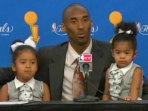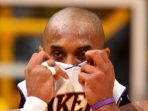Thoroughbred racetracks in the U.S. reported more than three horse deaths a day last year and 5,000 since 2003, and the vast majority were put down after suffering devastating injuries on the track, according to an Associated Press survey.
Countless other deaths went unreported because of lax record keeping, the AP found in the broadest such review to date.
The catastrophic breakdown of filly Eight Belles at the Kentucky Derby last month made the fragility of a half-ton horse vivid for the millions watching, but the AP found that such injuries occur regularly in every racing state. Tracks in California and New York, which rank first and sixth in thoroughbred races, combine to average more than one thoroughbred death for every day of the year.
Questions about breeding, medication, synthetic surfaces versus dirt and other safety issues have dogged the industry for some time, and a congressional panel has asked key players in the sport to testify this week about its direction, particularly the influence of steroids.
The AP compiled its figures from responses to open records inquiries sent to the organizations that govern the sport in the 29 states identified by Equibase Co., a clearinghouse for race results, as having had at least 1,000 thoroughbreds start a race last year.
Arkansas, Michigan, Nebraska said their organizations don't track fatalities at all, and only one of Florida's three main thoroughbred tracks provided numbers. There were wide differences among the other states in what types of deaths are monitored and how far back the records go.
"Nobody really knows how big of a problem it is," said Rick Arthur, California's equine medical director. "They just know it's a big problem."
When a horse breaks a leg — let alone two, as Eight Belles did — often the only choice is to euthanize the animal. A thoroughbred's bones are thinner than most breeds. Usually it's not possible for the horse to lie down for long periods because that could disrupt the blood flow to the arteries in the lower limb, causing an extremely painful hoof infection called laminitis.
Barbaro, who won the Kentucky Derby in 2006, broke down in the Preakness and was euthanized with laminitis several months later after a gallant effort to save him.
Despite the regularity of such breakdowns and the money involved in the sport, no one is certain how many horses are lethally injected on the nation's tracks each year. The Jockey Club, which registers all North American thoroughbreds, did not know of another comprehensive, state-by-state tally of fatalities at tracks before the AP's, said Bob Curran, a Jockey Club vice president.
Larry Bramlage, the on-call veterinarian at Churchill Downs in Louisville, Ky., who made the grim announcement that Eight Belles had been euthanized after the Derby, said fatality numbers don't seem to be dropping, despite major medical advancements. To Bramlage, that suggests racing injuries are becoming more frequent because vets are already pulling the most injury-prone horses before post time.
"We're able to pick them up better, with digital X-rays, bone scans and MRIs, which give us the information we need to take those horses out of training," Bramlage said. "In spite of that fact, we're not denting the total number of deaths."
California officials became alarmed in 2005 when the number of thoroughbred racing deaths there spiked by nearly 50 percent from just two years earlier. Last year, 314 horses — 261 of them thoroughbreds — died at California's tracks, including those hurt in training or barn accidents, and a few that suffered other injuries or medical complications.
"Just seeing the totals and the recurrent theme, it's eye-opening," said Bon Smith, assistant director of the California Horse Racing Board.
Beginning this year, California has mandated that all its major tracks replace their dirt surface with a synthetic mixture found in some studies to be safer for horses and jockeys.
While California's thoroughbred fatalities are nearly triple those reported by any other state, its warm weather and bounty of tracks make it the nation's busiest racing state. And it has received high praise across the industry for the way in which it tracks deaths — every death that occurs on the public grounds of a California racetrack is recorded in detail, largely through veterinary reports.
Some other major racing states have no records of fatalities that occur during morning training exercises, even those that happen on the tracks where races are run in the afternoon. Kentucky listed 228 deaths since 2003, but none of them from training accidents, which in some states that track them account for nearly a third of the total.
Other states, such as Colorado and Iowa, run mixed breed meets, in which quarterhorses might appear in one race a day while thoroughbreds make up most of the rest. Often, these states list the deaths only by meet, not breed, although veterinarians say the more muscular torsos and spindly ankles of thoroughbreds make them more susceptible to injury.
Many states that do closely track horse deaths haven't been doing it for long. New Mexico counted 52 deaths in 2007, but its racing commission said it had no records before that.
Some states that do monitor deaths don't differentiate between horses that die in freak accidents in their barns, for instance — the consensus is that such deaths are rare — and those that break down training or racing and are destroyed.
Such discrepancies have made the task difficult for Mary Scollay, a veterinarian at two Florida racetracks who has created a uniform national injury reporting system that aims to record every thoroughbred fatality. Scollay, who next month will become Kentucky's equine medical director, said 65 tracks are participating in the program now, but only 30 have compiled a full year's worth of data.
She declined to release the preliminary numbers, explaining the sample size is still too small to draw conclusions. It could take years, Scollay said, before major trends can be identified.
"Certainly we know more than we did last year at this time, and one fatal injury is one too many," Scollay said. "We know we need to do better. I think within the last few weeks, there's been a mobilization of the industry to do some pretty serious things."
Those who own and handle the animals stand to lose plenty when a horse is put down.
Timothy Capps, a professor at the University of Louisville's equine industry program, said most racehorses don't carry mortality insurance. The ones that do typically carry only a fraction of their projected value as a stallion or mare, Capps said.
After the gruesome breakdown of Eight Belles, the Jockey Club created a national panel to examine safety, and the Kentucky Horse Racing Authority did the same on the state level.
Among the topics being reviewed are track surfaces, medication (particularly steroids), the use of the whip by riders, and whether — as Bramlage suggests — thoroughbreds are becoming less durable because they're being bred to emphasize speed rather than stamina early in their careers.
"Those that do get hurt maybe get hurt worse because of their speed and size," said Larry Jones, who trained Eight Belles. "A good big horse will outrun a good little horse, and they can be more fragile because their legs and joints have to hold a lot more."
A House Energy and Commerce subcommittee has asked states for the figures they have on fatalities ahead of a hearing scheduled for Thursday.
Of particular interest to Congress is the influence of steroids, which were legal this spring in most racing states including Kentucky, Maryland and New York — which host the Triple Crown races.
Those advocating a steroid crackdown got ammunition when Big Brown, who easily won the Kentucky Derby and Preakness Stakes with the steroid Winstrol still in his bloodstream, ran the Belmont without it and finished last.
Rep. Ed Whitfield, R-Ky., said steroids should be banned — not regulated — in horse racing but questions whether the sport has the ability to police itself.
"There are enough people I have great respect for who say this industry is really beginning to be in trouble," Whitfield said.
Hall of Fame trainer D. Wayne Lukas said the sport gets a bad rap for what he believes it does best — take care of the animals.
"There isn't a trainer worth his salt that doesn't look into this 24 hours a day," Lukas said. "I'll guarantee you that if any one of those purists who feel like it's an abusive sport would spend two weeks in my barn, they'd walk away a different person and have a greater appreciation for the care. Animals don't have a say in it, but when they get to this level, they have a pretty good deal going."
Copyright 2008 The Associated Press. All rights reserved. This material may not be published, broadcast, rewritten, or redistributed.











